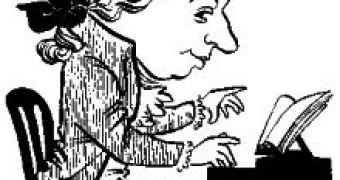In 1801, a gravedigger discovered a skull in a Viennese cemetery and claimed it was Mozart's. Hoping for a publicity stunt ahead of the 250th anniversary of the composer's birth on January 27, ORF broadcaster, which produces and transmits 13 radio and two television channels, paid for the DNA analysis of the skull. The skull has been stored by the International Mozart Foundation in Salzburg since 1902.
Tests were carried out on the skull and on bones which are suspected to be those of Mozart's grandmother Euphosina and his niece Jeanette. "The tests prove without doubt that there is no family link between these three people," Walther Parson of the Innsbruck medical institute told ORF.
According to popular legend, Mozart was penniless and forgotten when he died, and was buried in a pauper's grave. In fact, though he was no longer as fashionable in Vienna as before, he continued to have a well-paid job at court and receive substantial commissions from more distant parts of Europe, Prague in particular. Many of his begging letters survive but they are evidence not so much of poverty as of his habit of spending more than he earned. He was not buried in a "mass grave" but in a regular communal grave according to the 1783 laws. However, the original grave on St. Marx cemetery was lost. He died around 1 a.m. on December 5, 1791, while he was working on his final composition, the Requiem.
The anniversary of Mozart's birth will be celebrated in Austria and across Europe with concerts and festivals.

 14 DAY TRIAL //
14 DAY TRIAL //